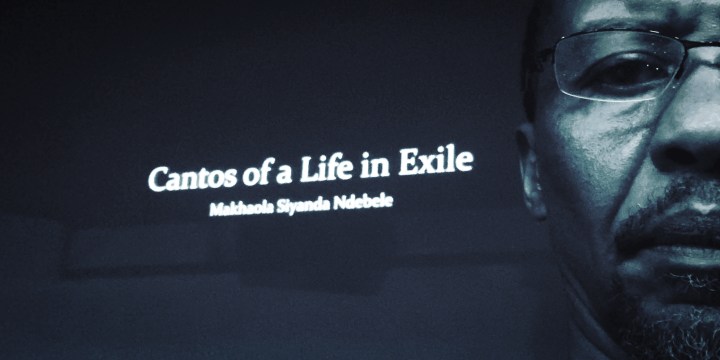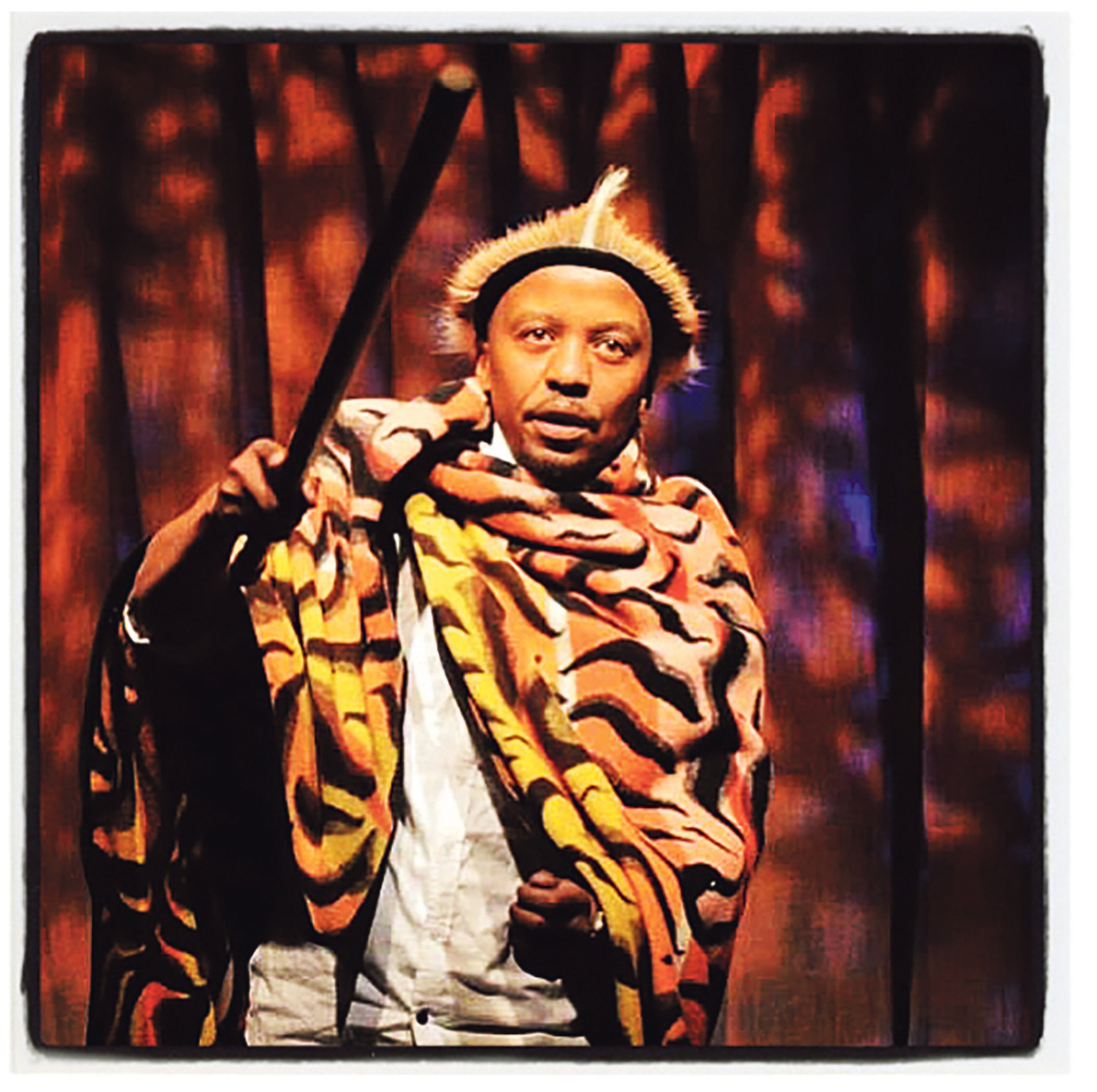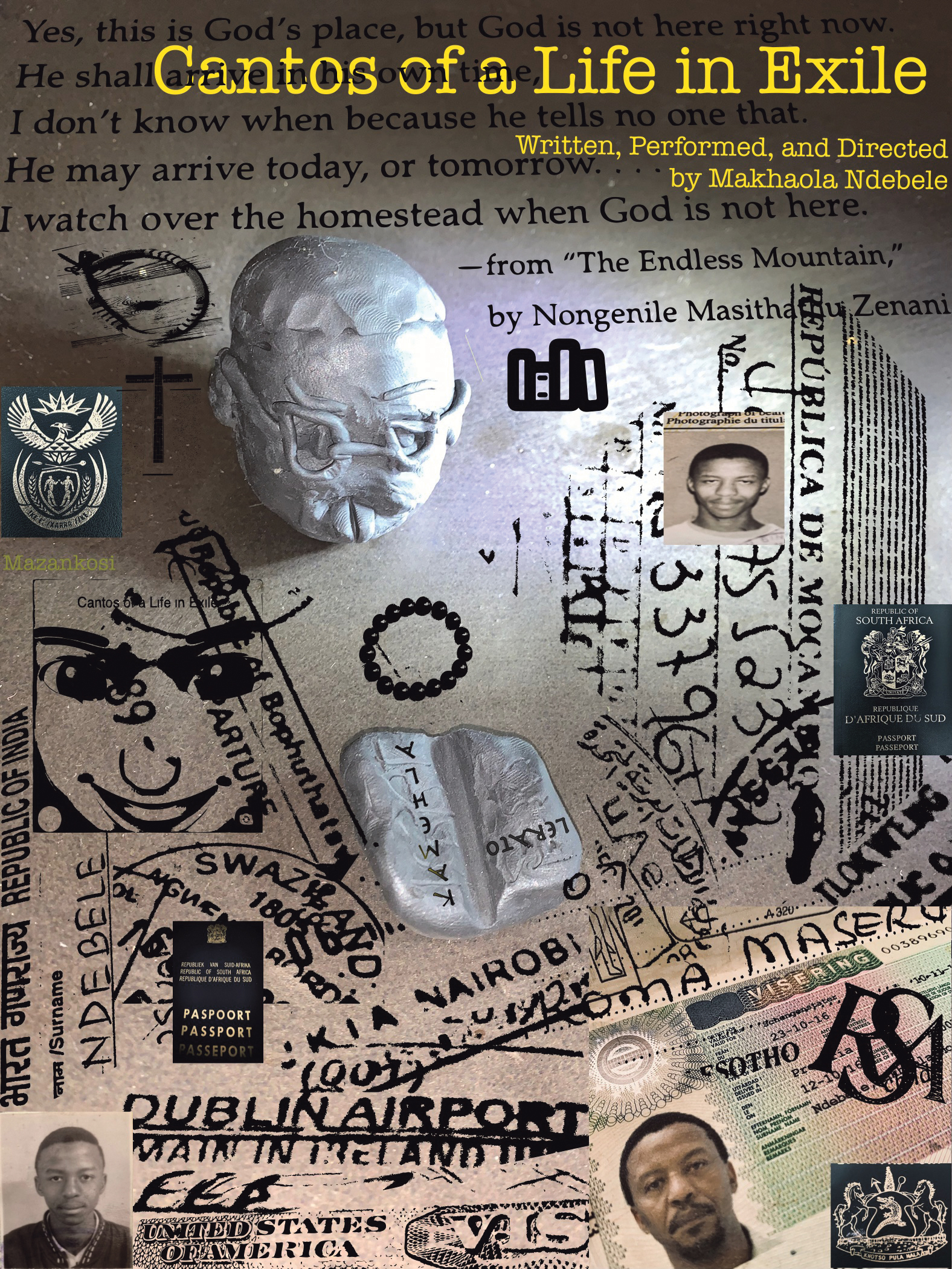INTERVIEW
Cantos of a Life in Exile: Staging second-generation trauma to heal apartheid wounds

Theatre can heal the past, as the multitalented Makhaola Ndebele demonstrates with his play.
Makhaola Ndebele’s play Cantos of a Life in Exile, which he wrote, directed and performs in, is a one-man odyssey that transcends the stage, becoming a vibrant exploration of displacement, identity and ultimately, the discovery of self.
Ndebele has more than 25 years of experience across various dramatic disciplines. He has worked as a theatre, television and film actor, is a dramatist and screenwriter, a theatre director, a television producer, an artistic director and a creative consultant.
As a story consultant and screenwriter, he has worked on a diverse range of projects, which include situation comedies, movies, drama series, soaps and variety-comedy shows. His television chops include work on Nomzamo; Zone 14; Crossing the Line, a TV movie; Gaz’lam; and Dube on Monday, a comedy show.
As a dramatist, his work mainly focuses on the personal politics of identity and liberation and familial struggles within a broader South African context. His pieces include one-person plays In the Meantime (1999) and Cantos of a Life in Exile (2015); the one-act play Lerato (2001); and musicals Gone Native (2017) and Bantu (2018).
Cantos of a Life in Exile is on at Cape Town’s Theatre Arts at the end of February. Ndebele spoke with us about what inspires his work, why he chooses to write about exile in postcolonial times and the magic of theatre.

Makhaola Ndebele in ‘Cantos of a Life in Exile’. (Photo: Supplied)
Explain what inspired Cantos of a Life in Exile?
The play was inspired by a significant gap in research examining the impact of exile on South Africans forced to leave their homeland during apartheid. While much is known about the initial experience of exile, little is understood about how it affects second-generation South Africans born outside their ancestral home. Little is known about their experience of estrangement and how they navigate their lives away from their homeland.
Read more in Daily Maverick: Trauma, terror, uncertainty — the apartheid scars of a childhood in exile that never quite go away
The project sought to understand their journey by exploring two key questions: what are the effects of growing up as a second-generation exile, and can theatre and performance practices help exiles find a sense of belonging and reconnection with their home and cultural identity?
To answer these questions, the project used a unique approach called “performance auto-ethnography” which combines personal stories with academic research. This allowed for a deeper understanding of the exile experience.
The project culminated in Cantos of a Life in Exile, a creative performance piece that tells the story of an individual navigating exile and searching for home. It draws inspiration from diverse theatre styles, but its heart lies in traditional South African forms such as iNgoma (healing rituals), iziBongo (praise poetry) and iNtsomi (storytelling). These elements add authenticity and depth to the portrayal of the exile experience.
In essence, Cantos of a Life in Exile was born from a desire to understand the complexities of exiles and explore the healing power of performance for those who carry this unique burden.

One-man show ‘Cantos of a Life in Exile’. (Photo: Supplied)
How long did it take you to write?
It took about 18 months to develop.
Why did you choose Europe, America and Lesotho to probe the concept of being in exile?
The protagonist of the story was born in Lesotho, where he spent most of his childhood. This was interspersed with some years spent growing up in England and America and travelling Europe as an adult.
In postcolonial Africa, does the question of identity need revision?
Yes. In revisioning identity in postcolonial Africa, a harmonious blend of voices is crucial — from individuals and communities to governments, artists and intellectuals. This entails reimagining historical narratives, celebrating a diversity of cultures and nurturing authentic expressions of identity. By acknowledging the richness of individual experiences and fostering inclusive spaces, we can embark on a vital journey of self-understanding and collective progress.
What is the major difference between television and theatre for an audience’s experience?
Both television and theatre offer unique and valuable experiences for audiences. In television, audiences are passive passengers, comfortably nestled in their living rooms, guided by the director’s lens, witnessing the story unfold, absorbing emotions and ideas, but rarely feeling truly present.
Theatre, however, throws us into the heart of the action. We become active participants, sharing a physical space with the performers, breathing the same air, feeling the energy of their presence. The immediacy of live performance, the vulnerability of the actors and the collective energy of the audience create a uniquely powerful emotional resonance that television can’t replicate. Theatre is a visceral journey that leaves an indelible mark on the soul.
In terms of performance aesthetics, do you feel there is a unique perception to be explored through the monologue rather than using a full cast?
Contrasted with full casts, the monologue presents a distinctive aesthetic influenced by South African traditions such as iziBongo and iNtsomi. Stripping away distractions, it puts the performer’s presence, raw emotions, and vocal and linguistic mastery in the spotlight. This concentrated focus gives rise to a unique aesthetic marked by vulnerability, authenticity and profound exploration, rendering the monologue a potent tool for artistic expression.
What is your next project’s focus?
My next project will focus on domestic relations and how they intersect with broader society. DM
Cantos of a Life in Exile is at Theatre Arts in Cape Town from 23 to 25 February. Tickets are available here.
This story first appeared in our weekly Daily Maverick 168 newspaper, which is available countrywide for R29.





















 Become an Insider
Become an Insider
Comments - Please login in order to comment.